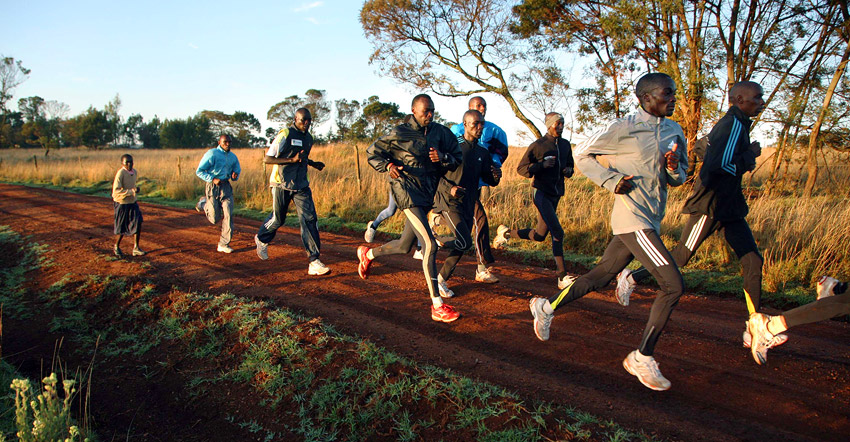The Kenyan lesson: Fearing failure limits potential
In the village of Iten 7,874 feet above sea level, a few thousand athletes willing to live in a closet-sized room and live on handouts run 100 miles a week, all for the chance to race internationally.
With a population of only 49.7 million, almost 1/7 of the population of the United States, Kenya dominates the world in professional running. The world record lists for track and road running events prove this; 40% of men’s records and 26% of women’s records are owned by Kenyans.
Kenyans are known for their aggressive racing style, a strategy that is more likely to produce dramatic outliers: very fast or slow times. In both workouts and races, Kenyans go out aggressively, asking for failure, which often, comes to them and causes them to slow down to a jog or drop out entirely. However, there comes a time when they are able to stick with the lead pack and achieve far greater results than they could have with a more conservative racing strategy.
Why do Kenyans race the way they do? This is a question Reid Coolsaet, a Canadian runner, asked himself before making the trip to Iten to train with the Kenyan s.
What he observed was a lack of fear- confidence and belief- “Even the humblest Kenyan runner wakes up every morning with the firm conviction that today, finally, will be his or her day” (Hutchinson). Kenya is ranked as the eighth poorest country in the world,meaning that its citizens have close to nothing, in other words they have nothing to lose.
The American approach is to go out conservatively and then negative split, which produces an average of better results. However, “there is no opportunity to surprise yourself with an unexpectedly good day: you’ve put a ceiling on your potential achievement from the moment the starting gun fires” (Hutchinson). American culture is less accepting of short-term failure, which hinders long-term success. A recent survey done by Linkagoal, a social network company, found that 31% of 1,083 adults are afraid of failure (Moline).
In my opinion, the more fulfilling strategy is the Kenyan strategy, the more effort based and less stopwatch managed of the two. This is because it is the only way one can truly become great, realize their full potential, and accomplish their biggest dreams. The Kenyan strategy is not only applicable to running, but to life. By imitating the Kenyans, and eliminating the common American fear of failure, we can break down the barriers we have predetermined for ourselves and find greatness.












